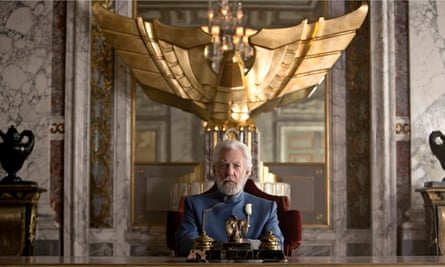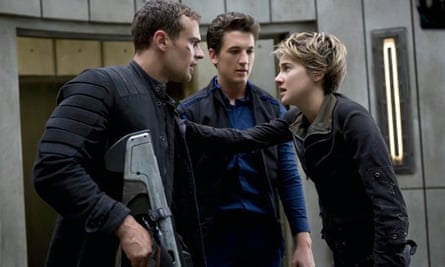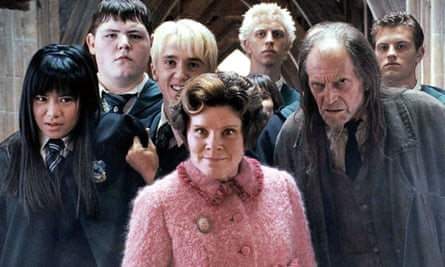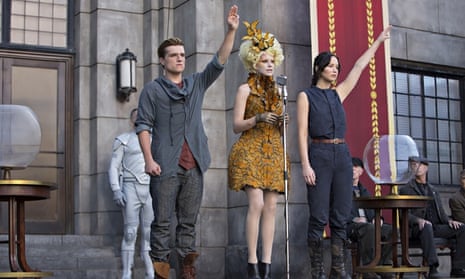The time has come, the general election is upon us, and in a few days we will have a new government, with new ideas and new theories about how to run the UK. With the growing anticipation to find out who will soon be in charge, I began to wonder how politics is represented to young adults in literature – and the more I looked, the more I couldn’t get away from one genre: dystopian fiction.
Take Divergent, or The Hunger Games, both hugely successful series with a film-based franchise to boot, yet both of these governments are portrayed as totalitarian, repressing the populations they rule over. And these aren’t the only ones: Uglies by Scott Westerfeld, Perfect Ruin by Lauren Destefano and the Matched trilogy by Ally Condie all portray their political leaders as deranged in the sense of being highly oppressive and depriving their populations of free will. Filtering through the cracks of these dystopian novels is a pervasive sense of futility, perhaps even inevitability, which could slowly have an influence on how young people perceive politics.

So if dystopian novels really have somehow become the norm for representing politics to young readers then what is the impact of this on our opinion of politics and our expectations in the real world? Are dystopian politics trying to show us that there is no room for rebellion in the 21st century? Or perhaps they are telling us that one person, like Katniss, can make a stand and lead a rebellion. That we can be like Tris and that it is OK to have different views and opinions on society and laws created by politics. The five factions of Divergent could be interpreted as a mirror to our modern 21st-century society, with the numerous political parties vying to create a government; Tris, nevertheless, bravely carves out her own direction. Within these two prime examples of dystopian novels we could say that the message which we encounter is that it is important for young readers to take an interest in politics and make a stand.
Obviously there are some caveats: Tris is 16 and Katniss is a similar age when making a stand against their governments, yet in the UK the voting age is 18 years old. And of course every teenager dreams of saving the world, making their mark on it before they are forced to participate in adult life – but that still doesn’t answer the question, why are the governments these characters are rebelling against almost always presented as dystopian? What are authors really attempting to communicate here? It seems to me that this use of teenage rebellion set within dystopian worlds could be telling us something else. Looking at dystopian novels and the ways in which politics is treated as a threat against individuality, I think authors are using dystopian politics to highlight failures in our own politics, trying to make young readers eager to question authority, and warning us that we really aren’t that far off from this type of politics ourselves.

Yet despite this, only 41% of first time voters will definitely be voting, leaving two million with no voice. Whatever its intentions, then, does the dystopian representation of politics in literature affect or have any influence on young people making that decision to vote or not? Has it reduced our opinion of government so far that we’re just not interested, or do we care about the politics but think, what can I do? After all, no one is Katniss or Tris or Cassia (from Matched), or Morgan (from Perfect Ruin); we aren’t the individual who will stand up and make their voice heard simply because… well, because life isn’t a fantasy. There are consequences in life and we don’t have a writer behind the typewriter or computer screen making sure our rebellion runs smoothly.
I did find one series which begins to portray government in a positive light. Well, for the first couple of books at least… This is the Ministry of Magic in JK Rowling’s Harry Potter series. We are at first presented in Harry Potter and the Philosopher’s Stone with a fully-functioning government which works well. And yet again, looking further into these novels, we see the Ministry becoming very dark and dystopian. So even this example isn’t the best to show a positive representation of politics and this could be the point: there really aren’t any good, realistic examples of government and politics.

And this is the thing: perhaps if there was more contemporary fiction with political aspects this might present a more positive view and encourage more young people to take an active interest in it. We need fiction to be teaching us to stand up and make our voices heard – just maybe not by starting a full-scale civil war to do so!
Here are some of your recommended realistic political YA reads
@GdnChildrensBks Example #1: http://t.co/1zhCk7TcWg
— Sarah Darer Littman (@SarahDarerLitt) May 6, 2015
@GdnChildrensBks @SarahDarerLitt Hope Was Here by Joan Bauer, The Daughters Join the Party by Joanna Philbin, The President's Daughter by
— robinreads (@RobinReads) May 6, 2015
@RobinReads @SarahDarerLitt @GdnChildrensBks Upcoming THE FIXER by Jennifer Lynn Barnes gives a lot of interesting insight to politics
— TeenLibrarianToolbox (@TLT16) May 6, 2015
@GdnChildrensBks @SarahDarerLitt Ellen Emerson White, Vote for Larry by Janet Tashjian,
— robinreads (@RobinReads) May 6, 2015
